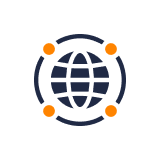Om
OmniOne Open DID Community
Oct24,24
Notice
As digital IDs are increasingly adopted for a variety of reasons, from enhancing public convenience to supporting marginalized communities without access to identification, blockchain digital IDs that enable self-sovereign identity for authentication data are gaining attention.
In fact, the international community is calling for efforts to expand digital IDs, as a significant portion of the global population lives without identification and is excluded from the benefits of social infrastructure. These individuals face restrictions in accessing basic services such as education, healthcare, and finance, as well as in participating in society through voting or employment. They are also more vulnerable to crimes like human trafficking and abuse, which exacerbates poverty and inequality. The United Nations (UN) and the World Bank (WB) estimate that more than 1.1 billion people worldwide lack identification, and both institutions are actively exploring digital ID adoption as a solution.
Those who are excluded from welfare benefits due to lack of identification are primarily located in areas with weak social infrastructure, such as systems for issuing IDs. These "ID blind spots" are prevalent in regions like Africa, Southeast Asia, and South America. Ironically, many of these countries have smartphone penetration rates exceeding 90%. Developing countries, which were slow to establish wired networks, adopted wireless networks more quickly, and because they skipped over the feature phone market, their transition to smartphones has been rapid. This suggests that developing countries with high smartphone adoption rates and weak physical ID systems are more open to adopting digital IDs than advanced countries with well-established ID infrastructures. The need for protecting citizens' rights, combined with the structure of society and markets, makes digital IDs critical.
Among digital ID solutions, there is growing demand for blockchain digital IDs, which offer strong security and selective disclosure of personal information. Governments are increasingly interested in adopting digital IDs at the national level because they allow for convenient and secure access to various public administrative services and financial transactions. Furthermore, digital IDs can enable innovative services such as online voting and medical record management, and they help improve welfare by providing these services to marginalized populations.
Since these national services handle large amounts of personal and identity information, stronger security and data protection are essential, making blockchain digital IDs an ideal solution. In centralized systems, if a server is attacked, the service can be paralyzed, leading to the rapid leakage or loss of sensitive data. In contrast, blockchain’s distributed node structure makes it difficult to cripple the entire system, even if some nodes are attacked. Additionally, blockchain’s unique consensus algorithm, which requires all nodes to agree before creating a new block, makes it nearly impossible to forge or tamper with sensitive citizen data. Countries seeking to use digital IDs as part of their national identification system are paying attention to these advantages and actively considering the adoption of blockchain digital IDs.
For example, the Indonesian government is actively promoting the adoption of digital IDs with the goal of issuing digital identification to all citizens by 2024. They are working closely with global companies that have advanced technologies in this field. Last year, Indonesia received consultation on national digital ID design from RaonSecure, a domestic IT security and authentication platform company. RaonSecure is expanding its blockchain digital ID business in the global market through its blockchain identity and credential authentication platform, "OmniOne Digital ID." The company has previously built the mobile ID issuance system for Korea’s Ministry of the Interior and Safety, where mobile driver's licenses, mobile employee IDs for public servants, and mobile veterans' registration cards are actively being issued.
In addition to Indonesia, other countries such as the Philippines, Costa Rica, Malaysia, Paraguay, and Uzbekistan are reportedly considering using blockchain digital ID in their national identification systems. Brazil also announced plans last September to begin issuing blockchain digital ID-based identification cards, starting in Rio de Janeiro, Goiás, and Paraná.
With these global trends, the blockchain digital ID market is expected to grow rapidly. Market research firm Grand View Research predicts that the market will grow at an average annual growth rate of 88.2%, reaching a size of $102 billion by 2030.
An industry expert stated, "Blockchain digital ID-based identification is receiving focused attention from the international community because it is superior to other digital IDs in terms of security and the ability to provide selective disclosure of identity information. As more countries aim to improve the welfare of their citizens, along with the efforts of international organizations such as the World Bank (WB) and the United Nations (UN), and the technical capabilities of global tech companies, the era of blockchain digital ID is expected to revolutionize the quality of life for millions of people, particularly those in ID blind spots."
아시아경제 / 장효원 기자








